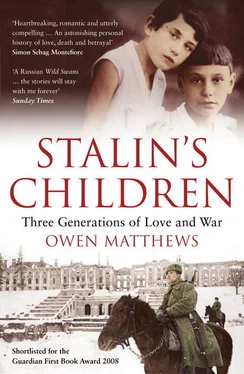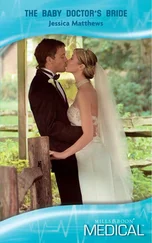Mia Foster first suggested this project: ‘Why don’t you write a book, Owen?’ she said by the fireplace at Charlie Bausman’s dacha at Nikolina Gora – and it was Charlie who egged me on to actually starting. But the only reason I could even contemplate writing a work of history, even of personal history, is thanks to my history tutors at Christ Church: William Thomas, Katya Andreyev and the late Patrick Wormald. Robin Aizlewood opened up Russian literature for me as an intellectual experience, rather than as the emotional, childhood one revealed to me by my mother.
In Russia, various friends and partners-in-crime deserve acknowledgement, though they’ll doubtless be horrified to find themselves mentioned in a single list: Isabel Gorst, Ed Lucas and Masha Naimushina, as well as Ab Farman Farmaian, Vijay Maheshwari and Robert King. I shared a dark fascination with – and many journeys into – the grim underside of Moscow with Mark Ames and Matt Taibbi, They turned out to be the great chroniclers of those strange and savage years.
In Istanbul, where I escaped for much of the period of the writing of this book, Gunduz Vassaf has been a wise and an unfailingly good friend, as has Professor Norman Stone. Andrew Jeffreys has been my closest confidant and sharer of post-Moscow adventures. Georgiana Campbell lent me her cottage in Dorset to start writing. Jean-Christophe Iseux has known me better and longer than almost anyone; he is one of the only people I know who truly lives a life of his own choosing, and that inspires me one day to do the same.
Marc Champion and Jay Ross at the Moscow Times made me a journalist, though I doubtless made their lives hell because I thought that I was so much better at the job than I really was. At Newsweek, Bill Powell was an ideal boss and mentor, il miglior fabbro of news magazine stories I have ever met. Chris Dickey has been a powerful influence and staunch ally. Mike Meyer and Fareed Zakaria made do for years with a correspondent who always had half an eye on this book, yet never complained. And now that I find myself in the odd position of doing my old boss’s job as Newsweek’s Moscow Bureau Chief, I have Anna Nemtsova as the new me – except she does the job of second correspondent far better than I ever did.
But most important of all, Mike Fishwick at Bloomsbury has shown a towering faith in this book, above and beyond the call of duty or reason. ‘Wait for me, but only wait very hard,’ wrote Konstantin Simonov of the Soviet women waiting for their loved ones to come home from the war, never knowing whether they actually would. Fishwick knows how they felt. Without his belief in me, none of this would ever have come to pass. Trâm-Anh Doan and Emily Sweet have been models of patience and efficiency.
On the home team, my US agent Diana Finch invested a huge amount of time and emotional energy in getting this book rolling. She, more than anyone, made me as a writer. Bill Hamilton, my London agent, has been a brick and model of imperturbability in the face of his author’s alarming changes of plan, schedule and fortune.
Finally, not only is this book dedicated to my parents, but I owe them enormous thanks for their help in writing this account of their lives. I have drawn heavily on my father’s two volumes of memoirs, Mervyn’s Lot and Mila and Mervusya, and my mother not only spoke to me at length about her memories but also wrote detailed notes on the final manuscript. My aunt Lenina has been a dear friend and inspiration to me for years; it’s a source of great sadness to me that she died in her sleep just a few days before I was able to show her the first proofs of this book. My sister Emily has made intelligent and fearless critiques of the book in all its various incarnations. My parents-in-law Alexei and Anna Kravchenko have not only tactfully ignored years of sporadic moodiness, alcoholism, despair and sundry other affectations of the literary life, but also always insisted on describing me to all comers as ‘the writer’ of the family. After a decade of effort, this is finally more or less true.
But by far the biggest burden has fallen on my wife, Xenia. As long as she’s known me, I have been writing this book. Two wars, two children and a move to a new country later, and I was still at it. Somehow she will have to get used to living with me alone, now that the book is finally born and out on its own in the world. I couldn’t have done it without her.
Amis, Martin, Koba the Dread: Laughter and the Twenty Million (Vintage, 2003)
Applebaum, Anne, Gulag: A History (Anchor, 2004)
Akhmatova, Anna, The Complete Poems of Anna Akhmatova (Zephyr Press, 1998)
Beevor, Antony, Stalingrad: The Fateful Siege: 1942-1943 (Penguin, 1999)
Bulgakov, Mikhail, Heart of a Dog (Grove Press, 1994)
Camus, Albert, Actuelles, III: Chroniques algériennes 1939- 1958 [Gallimard, 1958)
Conquest, Robert, The Great Terror (Macmillan, 1968)
—— Harvest of Sorrow (University of Alberta Press, 1987)
Figes, Orlando, Natasha’s Dance: A Cultural History of Russia (picador, 2003)
Ginzburg, Yevgeniya, Into the Whirlwind (Harvill Press, 1989)
Gogel, Nikolai, The Overcoat and Other Tales of Good and Evil (W.W. Norton & Co., 1965)
Grossman, Vasily, Life and Fate (New York Review Books Classics, 2006)
—— A Writer at War: A Soviet Journalist with the Red Anny, 1941-1945 (Vintage, 2007)
Koch, Stephen, Double Lives: Stalin, Willi Munzenberg and the Seduction of the Intellectuals (Enigma Books, 2004, revised edition)
Koestler, Arthur, Darkness at Noon: A Novel (Scribner, 2006)
Kotkin, Stephen, Magnetic Mountain: Stalinism as a Civilization (University of California Press, 1997)
Mandelstam, Nadezhda, Hope Against Hope: A Memoir (Modern Library, 1999)
Mandelstam, Osip, Selected Poems (Penguin, 1992)
Matthews, Mervyn, Privilege in the Soviet Union (Unwin Hyman, 1978)
—— Poverty in the Soviet Union (Cambridge University Press, 1986)
—— Mila and Merousya: A Russian Wedding (Seren/Poetry Wales, 2002)
—— Mervyn’s Lot [Seren, 2003)
Massie, Robert K., Peter the Great (Ballantine, 1981)
Medvedev, Roy, Let History Judge (Columbia University Press, 1989)
Meier, Andrew, Black Earth: A Journey through Russia after the Fall (W.W. Norton & Co., 2005)
Merridale, Catherine, Night of Stone [Granta, 2000)
—— Ivan’s War: Life and Death in the Red Anny, 1939-1945 (picador, 2007)
Montefiore, Simon Sebag, Stalin: The Court of the Red Tsar (Vintage, 2005)
Moynahan, Brian, The Russian Century: A Photographic History of Russia’s 100 Years (Random House, 1994)
Pasternak, Boris, Doctor Zhivago (Pantheon, 1997)
Razgon, Lev Emmanuilovich, True Stories (Ardis Publishers, 1997)
Remnick, David, Lenin’s Tomb: The Last Days of the Soviet Empire (Vintage, 1994)
Rilke, Rainer Maria, Selected Poetry of Rainer Maria Rilke by Stephen Mitchell (Random House, 1982)
Rybakov, Anatoli, The Children of the Arhat: A Novel (Little, Brown & Co., 1988)
Shalamov, Varlam, Kolyma Tales (Penguin, 1995)
Simonov, Konstantin, Days and Nights (Simon & Schuster, 1945)
Solzhenitsyn, Alexander, The Gulag Archipelago 1918-1956 (Harvill Press, 1999)
—— Cancer Ward (Farrar, Straus & Giroux, 1991)
—— One Day in the Life of Ivan Denisovich (Farrar, Straus &Giroux, 2005, new edition)
Читать дальше











